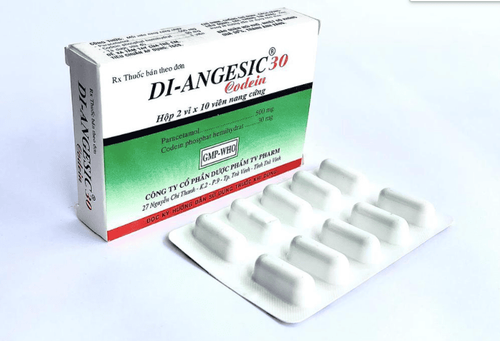This is an automatically translated article.
Niketamide has a stimulating effect on the central nervous system, especially the respiratory and circulatory centers. In the past, this product was widely used, but because the toxic dose is very close to the therapeutic dose, it is not currently recommended for widespread use. So what is Niketamide?
1. What is Niketamide?
Niketamide drug has the main active ingredient Niketamide 250mg/ml. Nikethamid is a product of Vinh Phuc Pharmaceutical Joint Stock Company VINPHACO (Vietnam), prepared in the form of an injectable solution and packed in a box of 5 ampoules x 1ml.
Active ingredient Nikethamide has a stimulating effect on the central nervous system, preferentially in the medulla oblongata and especially stimulates the respiratory center and the circulatory center. Thereby, Nikethamid will stimulate an increase in breathing rate, increase the sensitivity to CO2 of the respiratory center, and at the same time increase myocardial contractility, increase heart rate and slightly increase blood pressure. However, when used in high doses, Nikethamid will stimulate the entire central nervous system and lead to convulsions.
2. Indications and contraindications of Nikethamid
Nikethamid drug products are indicated in the following cases:
Patients with shock, suffocation, poisoning, loss of heart rate, respiratory failure and circulatory failure upon waking up; Poisoning with hypnotics or upon discontinuation of cardiac glycosides. Previously, Nikethamide was used as a respiratory stimulant, but its use for this indication is no longer recommended because the therapeutic dose is close to the toxic dose, especially due to the risk of convulsions.
Nikethamid is contraindicated in the following cases:
Patients with a history of porphyria; Patients with epilepsy or a history of other seizure disorders; Patients with cerebral edema, cerebrovascular accident or head trauma; Patients with severe acute bronchial asthma or with obstructive airway disease; Severe uncontrolled hypertension or ischemic heart disease; Patients with hyperthyroidism or phagocytic tumors.
3. Dosage, how to use Nikethamid
Nikethamid drug is made in the form of an injection solution, so patients can use it by subcutaneous injection or intravenous injection by medical staff (nursing) at the hospital.
The recommended dosage of Nikethamid is as follows:
Adults: 1-2 ml/time; Children: 0.1 ml/kg/time.
4. Side effects of the drug Nikethamid
During the use of Nikethamid, patients may experience the following undesirable effects:
Nausea; Convulsions; Feelings of restlessness; Dizzy ; Vasoconstriction; Arrhythmia; Irritation of the injection site; Eye irritation; Shortness of breath, breathing problems. When experiencing any unusual symptoms that are considered side effects of Nikethamid, patients should promptly notify their doctor or pharmacist for appropriate and timely intervention.
5. Nikethamid drug interactions
Nikethamid when used concurrently can increase the effect of sympathomimetic drugs or MAO inhibitors. Nikethamide increases the risk of cardiac arrhythmias when used at the same time as certain anesthetics (such as Halothane, Enflurane, Isoflurane). Nikethamide may mask the effects of neuromuscular blocking agents. The risk of convulsions is increased with the concomitant use of Nikethamide with Bupropion.
6. Note when using the drug Nikethamid
Patients taking Nikethamide should be especially cautious if there is a history of previous gastrointestinal bleeding due to peptic ulcers, coagulopathy, or are currently being treated with anticoagulants or anticoagulants. platelets, and especially in elderly and frail patients; Caution should be exercised when combining Nikethamide with diuretics and low-dose methotrexate (less than 15 mg/week); Absolutely do not combine Nikethamide with high dose Methotrexate; Use caution when using Nikethamide in patients with a history of allergy to non-steroidal anti-inflammatory drugs (NSAIDs); Patients using Nikethamid may experience unwanted symptoms such as headache or dizziness, thereby affecting the ability to concentrate, so caution should be exercised when driving and operating complex machinery; Absolutely do not use Nikethamid drug for women during pregnancy and during lactation. This product should be stored in an airtight container, stored at a temperature below 30 degrees Celsius. Nikethamid should never be left in wet or bumpy areas. Check the expiry date indicated on the package before using Nikethamid.; Similar to other drugs, Nikethamid products should be kept out of reach of children.
Please dial HOTLINE for more information or register for an appointment HERE. Download MyVinmec app to make appointments faster and to manage your bookings easily.













